Getting Intimate with…
Ruby Rare
May 27, 2023
Interviewed by Laura Clarke
Ruby Rare (she/they) is a queer, non-monogamous, pleasure-focused sex educator and author. Through her Sexy Sermons, her Body Love Sketch Club, and her Instagram page with over 84k followers, Ruby has a talent for initiating conversations about sex that are inclusive and accessible but also fun and sexy.
In this month’s Getting Intimate, Ruby talks about connecting with their body as a nude life-drawing model, the nuances of reclaiming harmful language, and the importance of a joy-first approach to teaching sex ed.
Can you tell us about how you got your start in sex education? When did you realise it was a passion of yours?
Sexual health has changed so much in the eight years that I've been in this world — it’s on people's radar so much more. Eight years ago, before I started to volunteer for Brook — a young people’s sexual health charity that I used to work at, and am now an ambassador for — I didn’t know that it was a job.
Now, it's something that we speak about much more. It's a more accessible conversation, especially on social media. And some people are aware that there is a side of sexual health and sex education that isn't just clinical, whereas I just didn't know that that existed. I thought you could be a rubbish PSHE teacher at school (I’d not experienced a good one before), or you had to be a nurse or a doctor, which I definitely hadn’t been good enough at school to be.
So I kind of stumbled into it as a passion and something I loved talking about, but also as a career. I didn't know what I wanted to do. I did a very sensible degree because that's what I was told I should do, and I never really enjoyed much of it or felt at home in that kind of world.
But I realised that every time something was a bit forbidden as a topic — relationships, sex, pleasure, or porn — I wanted to talk about it so much more than any of my friends. So I started researching stuff out of my own personal interests and discovered all of these things that I was never taught about in school. I do think that a lot of people who come into the RSE world do it in part because they didn't get it when they were younger.
And then I guess it's about how you evolve so you're not just always doing it from a place of anger.
As a fellow educator, I totally get that. It can feel like you’re righting a wrong — taking that feeling of injustice and making things better for young people moving forward.
And that's such an important attitude — going in determined to make change and advocate for young people. It's then interesting to see how that desire for change works in already-quite-complicated systems of healthcare, education, and third-sector work, which is a messy beast — important but by no means perfect.
So from there, I started volunteering as a young person with Brook before getting a part-time job with them, and I was working for another charity at the same time. And then eventually I got a full-time job with Brook.
I had quite a few different roles with Brook over the five years I was there. I taught sex ed in schools, delivered training for professionals, and managed a condom distribution scheme across a few different boroughs in London. And then, at the end of my time there, I was running a national period equity project, which was really exciting.
I really earned my sexual health stripes at Brook — it was a place where I was able to learn so much, not only about the ins and outs of the factual information but also about how to deliver it in a way that is animated, inviting, and encouraging for young people and professionals.
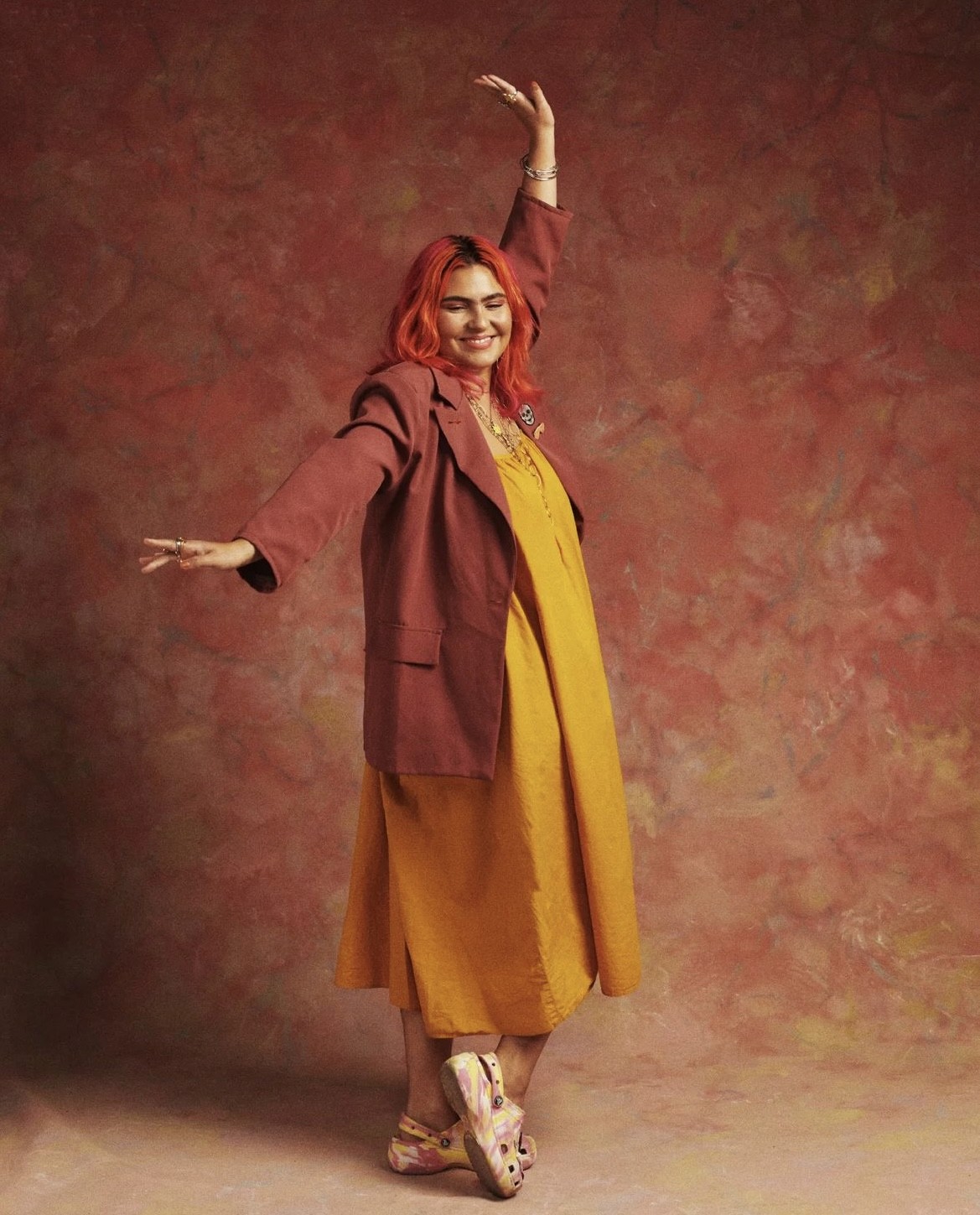
After your work at a young people’s charity, you authored your first book — Sex Ed: A Guide for Adults. What made you decide that adults would be your target audience?
A lot of the topics that I wanted to start talking about tended to be more about the social attitudes towards sex and relationships than the biological aspects — I still can't spell "gonorrhoea", and I don't think I’m ever going to be able to! (Laughs)
STIs are fascinating, but that’s not necessarily one of the subjects that I think I’m best-placed to teach. I can do it, but actually, things around the nuances of pleasure and porn and shame and self-discovery and all those things tend to feel a bit more fascinating to me, and I thought I would be able to write about them in a way that was a bit cheekier and more explicit with adults.
Also, when I started being invited to speak at events for adults and getting questions on social media from adults, it was glaringly obvious that 99% of us got really deeply inadequate education about all of this at school.
So whether you are twenty, forty, or eighty, all of us have some catching up to do with our learning. And this is stuff that we never need to stop learning about because it’s such an important and intimate part of our lives, whether you are sexual, romantic, or not. It shapes the way that we exist in the world.
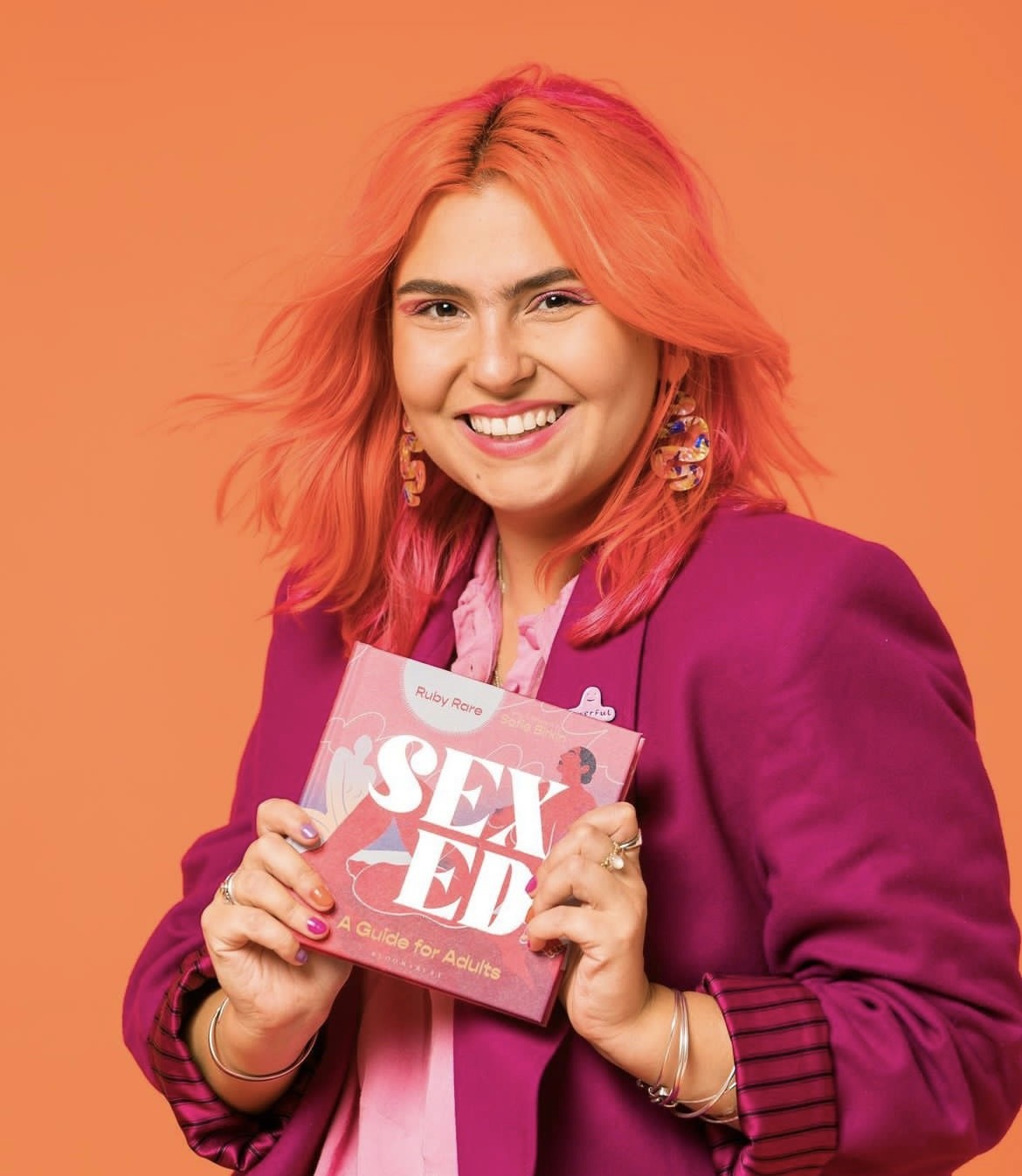
So if an adult feels let down by the sex ed they received in their youth and wants to learn more about sex and pleasure, your book is a great resource, but where else is a good place to start?
I’m really proud that my book sits alongside some other amazing texts that really helped me with my own foundational knowledge. For adults, three of the really pivotal books that I recommend to anyone are Come As You Are by Emily Nagoski, Mind the Gap by Karen Gurney and Pleasure Activism by Adrienne Maree Brown.
But more than the research that you are doing through reading, listening to podcasts, and interacting with people on social media, I think it’s about trying to find people in your life that you can have in-person conversations with. It's one thing to read or listen to other people's stories, but I think it's about trying to build some connection around this. It’s what a lot of people feel is lacking at the beginning of this journey because none of us have been encouraged to talk about it.
You’re very open about your love of nudity — how can being nude affect our relationship with our bodies, both in a sexual and non-sexual sense?
It's got the potential to have a massive impact on how we all view ourselves, but it works differently for different people. I think it's really important to stress that, for me, nudity feels by and large like a really lovely thing — a way of connecting with myself. It's something that's been really healing, but that doesn't mean that's the only way to do it.
I've been running a life drawing class called Body Love Sketch Club for the past five years with one of my best mates Rosy, who is wonderful. That came from both of us having really transformative experiences over years and years of being life models in arts spaces. I've now been life-modelling for ten years, which feels pretty wild. That was the first time that I was invited into a space where my body was nude and still, and that allowed my body to settle into that state and to really feel my own presence.
I suppose if you are naked, you are usually doing something — showering, or getting dressed, or having sex. How often do we just get to be nude?
Yeah, for a lot of people, they’re only naked as a small break between being clothed, and then there's a lot of your body that you don't end up engaging with. I’ve sat posing in a life-drawing class and felt a breeze on bits of my body, like my hips or my belly, which wouldn’t normally be exposed to the elements.
So Rosy and I created this class where people draw and pose, and it's about experiencing what it's like to view other people's bodies and also to view your own body and have your body viewed in that space. It’s about kindness and celebration and artistic curiosity.
It's not about body positivity in the sense of “I love my body and everything's great”, and it’s not about body neutrality — it’s trying to find some friendship and community with your own body. It’s also body appreciation and body enthusiasm — rather than thinking, “I have this body, and this is how it looks, and this is how that makes me feel”, it’s starting to think, “I’ve got this f*cking body. Wow. How is this body working all the time? This is wild.”
I think nudity can exaggerate those experiences and those emotions, but it’s not necessarily the only way to do it. Comfort with your own body helps so much when it comes to relating to other people with your body in terms of dating, intimacy, and sex. The more aware you are of your own body, the better you’ll be at relating it to other people’s.
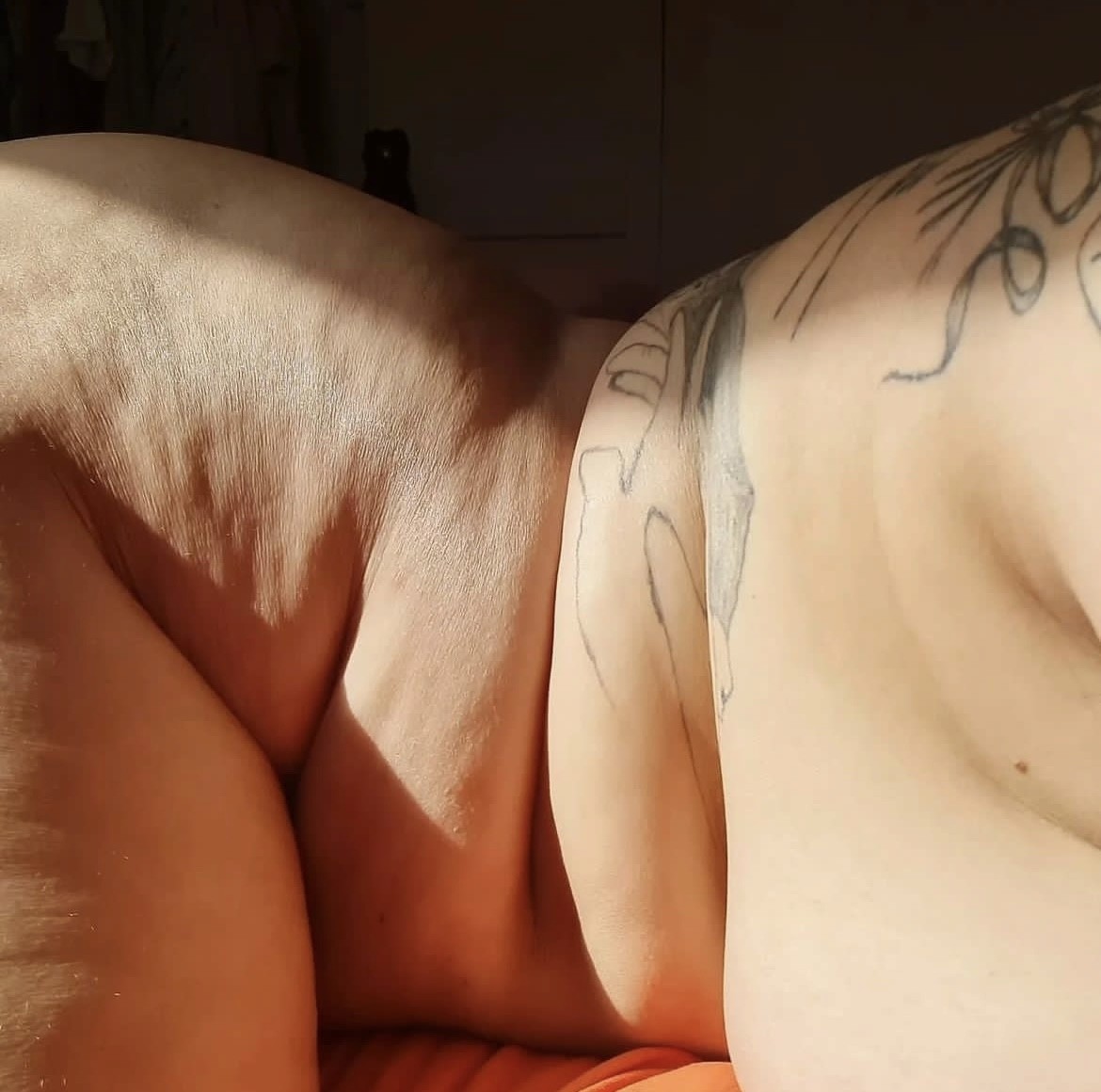
You’ve previously used the word “slut” to define yourself — what does that word, and the reclamation of it, mean to you?
It's a word that I have an evolving relationship with. Around four years ago, I was doing a talk called “How To Be A Slut”, which was an earlier version of a talk that I do now called “Being A Slut”, which is more about cultural criticism.
My perspective on all of this has changed quite a lot because four years ago, myself and lots of other people were looking at this as an opportunity to reclaim a word, which I still think can, in large parts, be a positive thing to do. But I was just doing it in quite an oversimplified way — you know, “I can be a slut, you can be a slut, it's all good!” — without really looking at the nuance of what that means. So nowadays, I'm still pretty slutty, but I'm also less objectively slutty than I used to be, ‘cause I’m tired quite a lot of the time (laughs).
(Laughs) Yeah, that'll do it.
I've spoken in the past about being a “part-time slut” or a “slut on sabbatical” — it doesn't have to be this active thing. My past, my present, and my future are always going to have a bit of sluttiness in them, and I relish and celebrate that.
But, similar to the word “queer”, we can't just fully remove the words that we are reclaiming now from the context that they came from. I guess I'm more aware now of the damage that “slut” has done and the demonising of gay people, but especially women's sexualities. All of it is so rooted, not only in sexism but also in white supremacy and colonialism. So it feels quite glib now to just take that word, run with it, and have a little party with it — it’s gotten much more complicated in my mind, and I'm fascinated by that.
We can all be curious and critical about using a word and also think it's a really important thing to be claimed within our spaces.
It’s really interesting how reclaiming language can come with so much baggage.
And we can't remove that baggage. Even if in my world that word is used in a playful, empowered way to self-identify or identify close friends, the vast majority of the time that word is still used in a very derogatory way. So it's a privilege in itself for me to be able to identify that way within my safe, close circle.
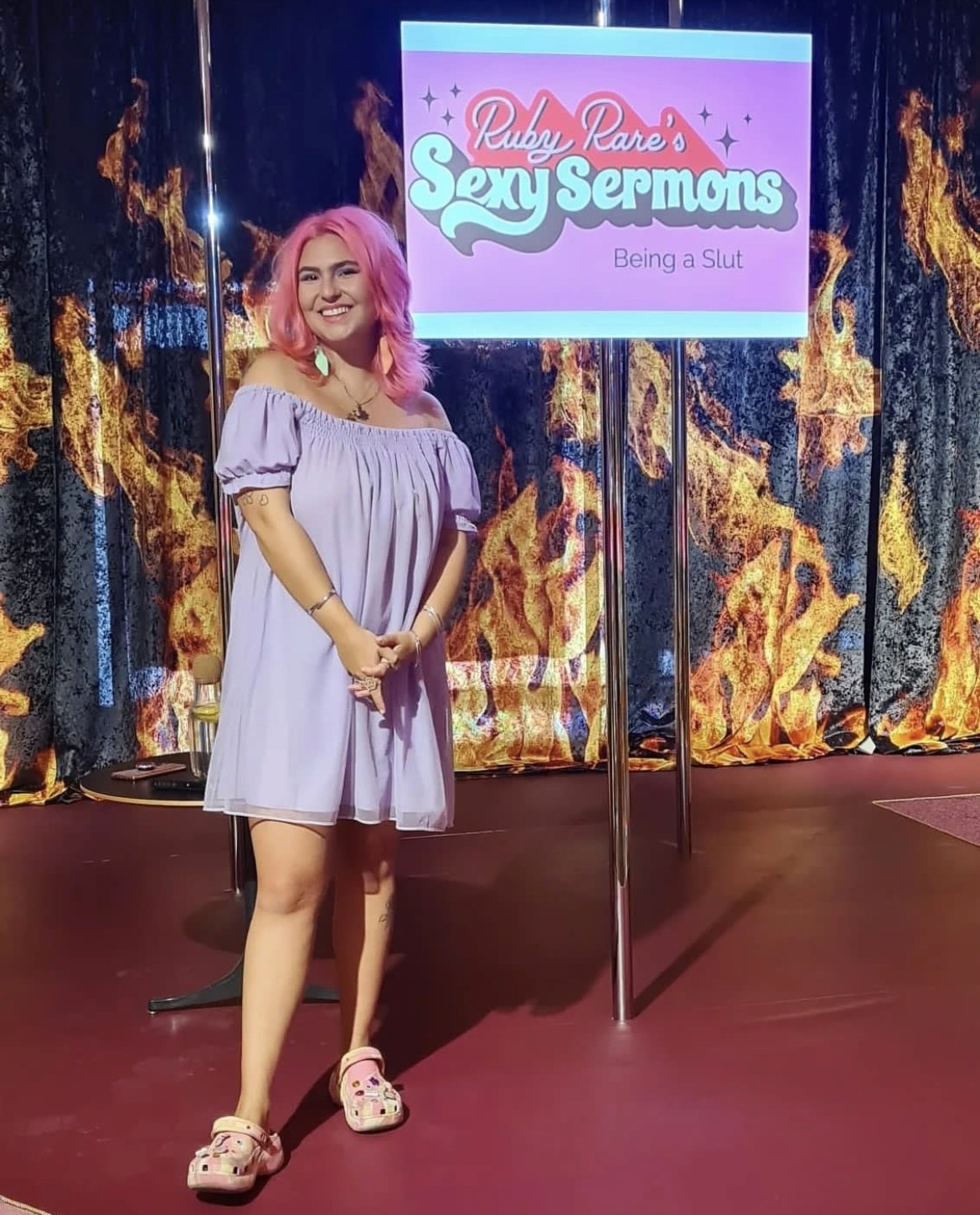
“Silly” is another word you often use to describe yourself — can you speak more about the role of silliness and playfulness in sex, and why this is important?
Well, the most distilled way that I think about sex is as a form of communication. It is a way that we communicate, with ourselves and with other people, and that is something that is done verbally but also physically and physiologically.
Communication has many different forms and many different emotions attached, and that is the same for sex. The emotions and mood of sex change so much and can be so varied, and I hope that lots of people find that silliness and playfulness within their own sex lives.
But when we talk about sex in RSE with young people — all of the messages around sex and dating expectations — there's very little room for fun. There's a lot of pressure. There's a lot to get right. There are a lot of high stakes in terms of health risks, emotional risks, and how to traditionally succeed in a relationship. And I was never told that sex could be fun.
So I always try to start by acknowledging the joy that it can bring. That sex has the potential for joy and self-discovery and exploration and connection and fun. Then you can acknowledge all of the difficult and complicated things. But silliness is just such an important part of that for me — to get people to a place where they’re relaxed enough to laugh at things because it’s funny and silly. Bodies are so stupid, it’s ridiculous! (Laughs)
(Laughs) Yeah, I’ve seen so many articles along the lines of “how to take off your jeans sexily” but if you actually just acknowledge that taking off jeans is quite difficult at the best of times and have a laugh about it, isn’t that better than just trying to make everything so serious? I suppose it’s just recognising that you are human and that you’re having a human experience.
Yeah, I think that the script we’re given about sex tells us that it should be an earnest performance, and I don’t want that. I don’t have fun having sex like that, and I think that’s true for a lot of people.
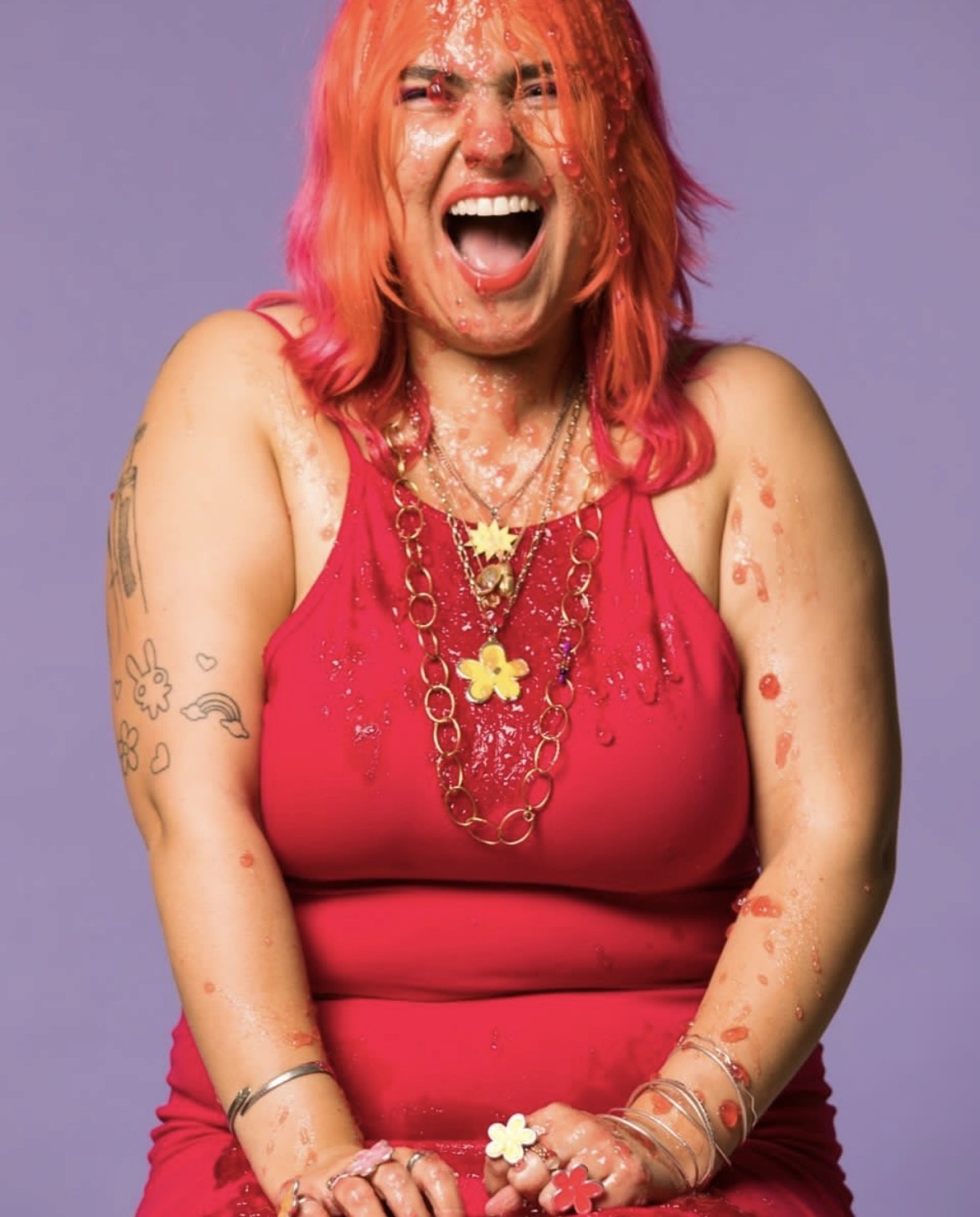
We’ve come so far, and the sex-positive movement is increasingly celebrating types of sex and relationships that may have historically gone unseen — queer, non-monogamous, kinky… What does broadening our understanding of what is considered “normal” do for our attitude towards our own sex lives?
The simplest answer is that it gives more people more options, which is really important to me. I want the work that I do to impact a really broad range of people and for people to take whatever they want from it. So it's hopefully normalising and celebrating a broader range of behaviours and showcasing how they can be done with care and respect. Just because it's not normal for you, that doesn't mean it's not a really lovely part of someone else's life.
It’s also about people who experience sex, relationships, and desire in a slightly more niche way — which is probably actually the majority of people! (Laughs) It's about being able to invite curiosity without it feeling objectified or like it comes from a place of disbelief or disapproval.
Part of my job is putting myself out there as someone who is non-monogamous, queer, and up for having conversations about that. Also, my relationship style has been part of my life for quite a while now, so I feel like I'm in a good place where I can talk about this.
I just want there to be more varied experiences that are shared, because I didn't know that you could be happily non-monogamous until I was in my early twenties. I didn’t know that bisexuality and pansexuality were valid and something that I was allowed to be.
And, on the flip side of that, how do we ensure that the sex-positivity movement includes people in relationships that may be considered more “traditional”? What does sexual liberation look like for cis/het, monogamous, vanilla folks?
Even though none of us want to, it's impossible to not compare yourself to others and end up thinking in a competitive way, and yet, in an ideal world, I really don't want anyone to view their preferences and desires when it comes to sex and relationships in a way that is competitive with other people's.
It's not a one-upmanship — you are not cooler for going to a sex party. You’re cooler for doing something that you wanted to do. But what you want to do can look like anything. I'm someone who has gone to sex parties before, and I will again. But honestly, what I want to do the most right now is sit on a sofa and eat crisps (laughs).
(Laughs) I can definitely relate!
And maybe that's less glamorous! But I think we're all taught to view sexual exploration as this performative act, which can end up feeling really inauthentic for us. I wouldn't ever want someone to view the way that I live my life as a critique of their informed, joyful choices.
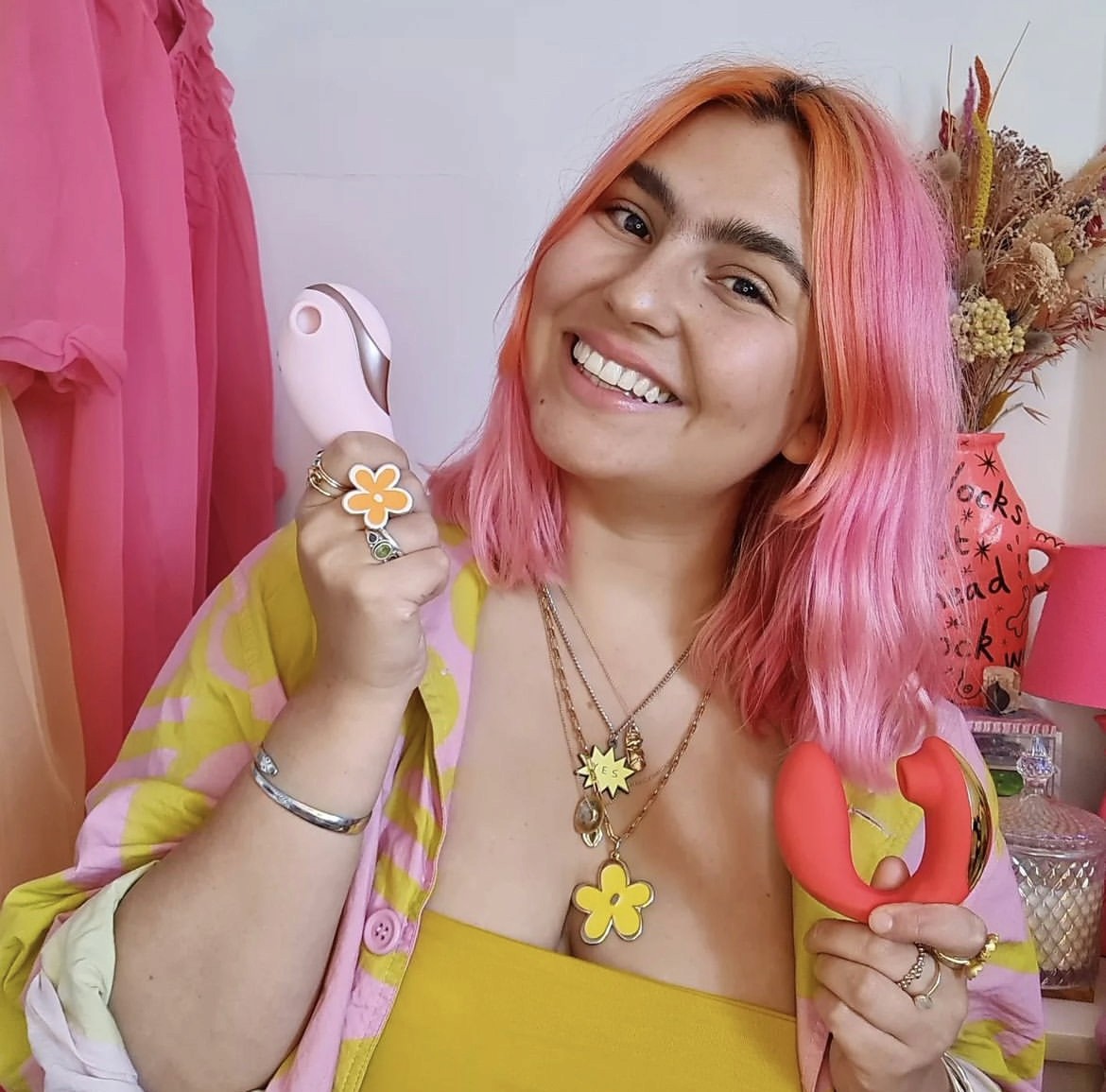
And finally, what was a question you had about sex or gender in your youth, and could you answer it now for anyone who may be wondering the same thing?
What I really wanted to know about was blowjobs because it felt really important to know about them, but no one was talking about what actually happened. There was a kind of expectation that you should just do it and know intuitively what to do.
I would really just stress the pleasure of receiving and also the pleasure that can come with giving. We really need to try and normalise oral sex in all its forms and think about it as an opt-in kind of thing. The oral sex that you tend to see in porn looks very different from the oral sex that you might want to actually do in your life. It's about communicating — you don't know what someone is going to enjoy; you’ve got to talk about it and explore.
Also, fingering is weird! I guess when I started being sexually active, I was like, “this is meant to be a nice thing that people should do, but I don’t know if I really like this.” Please have the confidence to say, “whoa, slow down there!” (Laughs)
Getting Intimate is the blog series where we interview people making a difference in the world of sex, relationships, gender and feminism. Read more interviews here.
If you want to learn more about Ruby and her work, check them out on Instagram (@rubyrare)
For more sex and relationships content, follow My Body & Yours on Instagram (@mybodyandyours)
Interview Date:
May 16, 2023
